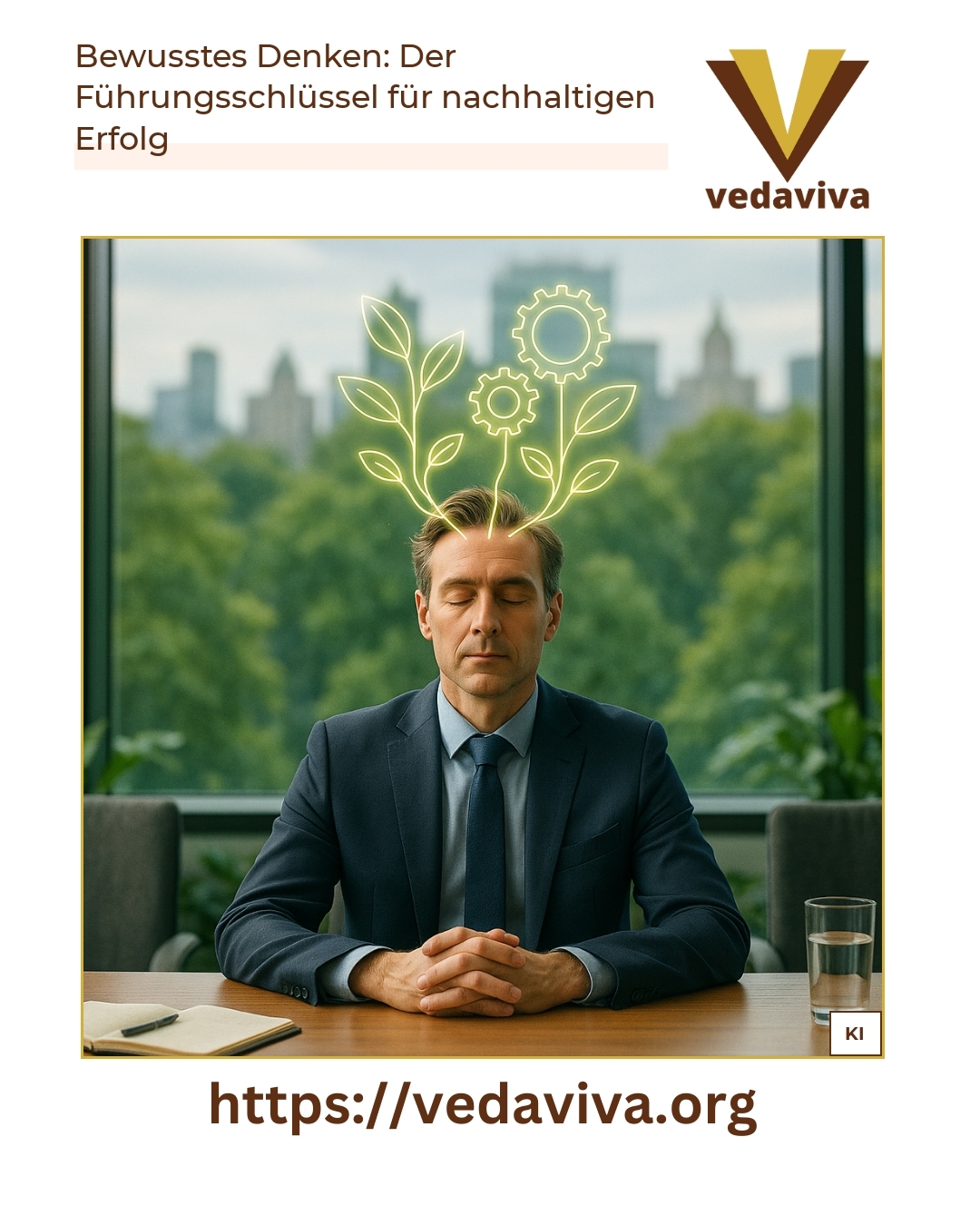Conscious thinking as the basis for sustainable success
Conscious thinking is a decisive key to sustainable success in leadership. It describes the active control and conscious perception of thoughts, emotions and information. Especially in challenging situations, this ability helps to set priorities clearly and make targeted decisions.
Managers who think consciously develop a structured approach that enables them to analyse complex issues and weigh up options for action. This creates space for clear goals and rational and creative solutions.
How conscious thinking improves decisions
Conscious thinking helps managers to systematically analyse facts and take their own emotional state into account. The result is more informed and sustainable decisions. A distinction is made between controlled, conscious thinking and unconscious, automatic thought processes - the latter occur quickly but are often prone to error.
Companies benefit from the fact that conscious thinkers cope better with stressful situations, set clearer priorities and act more strategically. This enables them to promote innovation in a more targeted manner and at the same time reduce risks by making more considered decisions.
BEST PRACTICE at ABC (name changed due to NDA contract) In a project team, conscious thinking was used to reduce stress under high time pressure. The structured analysis of the tasks led to a realistic schedule that left room for creative solutions and thus contributed to better work results.
Conscious thinking as a means of promoting a long-term approach
Sustainable success does not come from short-term impulses, but from long-term strategies that are patiently implemented. Conscious thinking sharpens the understanding of this connection. Managers recognise the value of continuous reflection and the conscious use of resources in order to create lasting stability.
Conscious thinking thus becomes a tool that companies can use to promote a culture of reliability and quality. It helps decision-makers to focus not only on short-term profits, but also on sustainable development.
BEST PRACTICE at DEF (name changed due to NDA contract) One company established conscious thinking as an integral part of its management philosophy. This enabled them to define long-term development goals more clearly and pursue them more consistently. This led to better risk minimisation and stronger customer loyalty, without neglecting short-term market pressure.
Practical impulses for the implementation of conscious thinking
Practice-orientated training and methods are ideal for promoting conscious thinking in day-to-day business. They strengthen the ability to pause and reflect on thought processes. In this way, managers create a conscious attitude towards challenges and can better support their teams.
In addition to analytical understanding, it is important to recognise creative impulses and make room for them. Consciously breaking through routine thought patterns can help to look at problems in a new way and discover alternative solutions.
BEST PRACTICE at company XYZ (name changed due to NDA contract) A conscious thinking training programme was introduced in a medium-sized company to help project managers see challenges as opportunities. This enabled participants to adapt better to complex situations and make decisions with more confidence.
Conclusion: Conscious thinking as the key to leadership culture
The conscious handling of thoughts is not a question of talent, but a skill that can be learnt and cultivated. In leadership, conscious thinking creates clear orientation and acts as a foundation for sustainable success. Through targeted exercises and reflective practice, this skill becomes a valuable tool for every leader.
Further links from the text above:
[1] Conscious thinking: Your success factor for better decisions
[2] Conscious thinking training: your success booster for decision-makers
[3] Why patience and long-term strategies promote sustainable success
Legal notice: Coaching does not replace therapy. It serves personal development. I do not diagnose or promise a cure. My offer is for personal development and is not a substitute for medical, psychotherapeutic or curative treatment. Please consult a medically qualified specialist if you have any health complaints. The experiences described here are based on individual feedback from my clients. They are not a guarantee of success and do not replace medical or therapeutic counselling. For more information and if you have any questions, please contact Contact us on the topic or read further blog posts on the Topic here.













